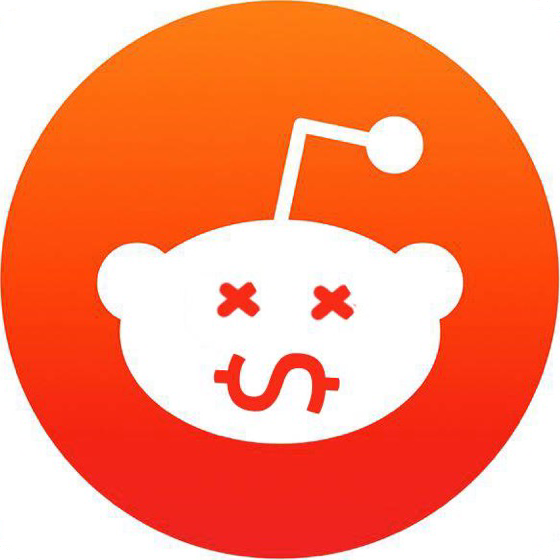Not discrediting Open Source Software, but nothing is 100% safe.
Luckily there are people who do know, and we verify things for our own security and for the community as part of keeping Open Source projects healthy.
Open source software is safe because somebody knows how to audit it.
And to a large extent, there is automatic software that can audit things like dependencies. This software is also largely open source because hey, nobody’s perfect. But this only works when your source is available.
Though one of the major issues is that people get comfortable with that idea and assume for every open source project there is some other good Samaritan auditing it
The point is not that you can audit it yourself, it’s that SOMEBODY can audit it and then tell everybody about it. Only a single person needs to find an exploit and tell the community about it for that exploit to get closed.
Did you fabricate that CPU? Did you write that compiler? You gotta trust someone at some point. You can either trust someone because you give them money and it’s theoretically not in their interest to screw you (lol) or because they make an effort to be transparent and others (maybe you, maybe not) can verify their claims about what the software is.
“given enough eyeballs, all bugs are shallow” …but sometimes there is a profound lack of eyeballs.
No, but someone knows how and does. If there’s something bad, there’ll be a big stink.
But eventually somebody will look and if they find something, they can just fork the code and remove anything malicious. Anyways, open source to me is not about security, but about the public “owning” the code. If code is public all can benefit from it and we don’t have to redo every single crappy little program until the end of time but can instead just use what is out there.
Especially if we are talking about software payed for by taxes. That stuff has to be out in the open (with exception for some high security stuff - I don’t expect them to open source the software used in a damn tank, a rocket or a fighter jet)IDK why, but this had me imagining someone adding malicious code to a project, but then also being highly proactive with commenting his additions for future developers.
“Here we steal the user’s identity and sell it on the black market for a tidy sum. Using these arguments…”
Open source software is safe because so few people use it it’s not worth a hacker’s time to break into it (joking, but of course that doesn’t apply to server software)
You can get a good look at a T-bone by sticking your head up a cow’s ass but I’d rather take the butcher’s word for it.
There are people that do audit open source shit quite often. That is openly documented. I’ll take their fully documented word for it. Proprietary shit does not have that benefit.
And even when problems are found, like the heartbleed bug in OpenSSL, they’re way more likely to just be fixed and update rather than, oh I dunno, ignored and compromise everybody’s security because fixing it would cost more and nobody knows about it anyway. Bodo Moller and Adam Langley fixed the heartbleed bug for free.
deleted by creator
Just like how no one has ever put anything malicious on Wikipedia. Nope, never, not once
deleted by creator
This is wrong and ignorant. It happens all the fucking time. Software vendor supply chain is a huge fucking issue.
Christ, tell me you have no idea what your talking about with 1 sentence vibes.
deleted by creator
Lol no it doesn’t. It happens weekly, all the fucking time.
Source: I’ve been developing oss software for 20 years and have had to push hundreds of teams to fix their vendors bin.
Chill == I ain’t got shit to say 🤣
Also, recompile the source code yourself if you think the author is pulling a fast one on you.
is there not a way to check if thw sourvw and releasw arent the same? would be cool if github / gitlab / etc… produced a version automatically or there was some instant way to check
deleted by creator
While I generally agree, the project needs to be big enough that somebody looks through the code. I would argue Microsoft word is safer than some l small abandoned open source software from some Russian developer
I really like the idea of open source software and use it as much as possible.
But another “problem” is that you don’t know if the compiled program you use is actually based on the open source code or if the developer merged it with some shady code no one knows about. Sure, you can compile by yourself. But who does that 😉?
You can check it using the checksum. But who does that?
In all seriousness I am running NixOS right now using flakes. The package manager compiles everything unless a trusted source already has it compiled, in which case the package manager checks the checksum to ensure you still get the same result and downloads that instead. It also aims to be fully reproducible and with flakes it automatically pins all dependency versions so next time you build your configurations, you get the same result. It is all really cool, but I still don’t understand everything and I’m still learning it.
Based NixOS user
I love NixOS but I really wish it had some form of containerization by default for all packages like flatpak and I didn’t have to monkey with the config to install a package/change a setting. Other than that it is literally the perfect distro, every bit of my os config can be duplicated from a single git repo.
Great points. I kinda feel the same with containerization. I have been wanting change my OS on my home server and while NixOS is great for that, I have decided to do things differently and use OpenSUSE Micro OS. My plan was actually Fedora Core OS, but after that Red Hat drama I decided to run with SUSE instead. It is an immutable distro with atomic upgrades that is designed for being a container host. It uses Ignition as the configuration for setting up things like users, services, networking, etc. My plan is then to just use containers like I was doing before on Fedora Server and for the other things to use Nix to build container images. Instead of using DockerFile, you’d use Nix Flakes to create really minimal images. Instead of starting with a full distro like Alpine, Nix starts from scratch and copies all dependencies over as specified in your flake. So the image only contains the absolute minimum to run. I think I’d be a fun side project while learning more about Ignition, Linux containers and Nix Flakes.
As for your point on config, I think it’s just part of the trade offs of NixOS. You either have a system that can be modified easily at anytime through the shell or you have a system that you modify centrally and is fully reproducible. You can already install packages with nix-env in the command line without changing your config, but that also won’t be reproducible. Maybe a GUI app for managing your config and packages could be helpful, although I’m pretty sure that’s low priority for NixOS right now.
But someone does
Sure, someone knows how to audit code.
Whether that someone is inclined to do it for whatever random FOSS package / library / application / service / whatever is a different question.
I had a discussion with a security guy about this.
For software with a small community, proprietary software is safer. For software with a large community, open source is safer.
Private companies are subject to internal politics, self-serving managers, prioritizing profit over security, etc. Open source projects need enough skilled people focused on the project to ensure security. So smaller companies are more likely to do a better job, and larger open source projects are likely to do a better job.
This is why you see highly specialized software has really enterprise-y companies running it. It just works better going private, as much as I hate to say it. More general software, especially utilities like OpenSSL, is much easier to build large communities and ensure quality.
With all due respect, I have to strongly disagree. I would hold that all OSS is fundamentally better regardless of community size.
Small companies go under with startling frequency, and even with an ironclad contract, there’s often nothing you can do but take them to court when they’ve gone bankrupt. Unless you’ve specifically contracted for source access, you’re completely SOL. Profitable niche companies lose interest too, and while you may not have the same problems if they sell out, you’ll eventually have very similar problems that you can’t do anything about.
Consider any of my dozens of little OSS libraries that a handful of people have used, on the other hand. Maybe I lost interest a while ago, but it’s pretty well written still (can’t have people judging my work) and when you realize it needs to do something, or be updated (since things like dependabot can automatically tell you long after I’m gone), you’re free and licensed to go make all the changes you need to.
I think you see highly specialized software being run by enterprisey companies because that’s just business, not because it’s better. It’s easiest to start in a niche and grow from there, but that holds true with open software and protocols too. Just look at the internet: used to share research projects between a handful of universities, and now has grown to petabytes of cat gifs. Or linux. Started out as a hobby operating system for a handful of unix geeks, and now runs 96.3 percent of the top 1 million web servers.
It always starts small and gets better if it’s good enough. This goes for OSS and companies.
Unfortunately that is not the case. Closed sourced software for small communities are not safer. My company had an incredibly embarrassing data leak because they outsourced some work and trusted a software used also by the competitors. Unfortunately the issue was found by one of our customers and ended up on the newspapers.
Absolutely deserved, but still, closed sourced stuff is not more secure










